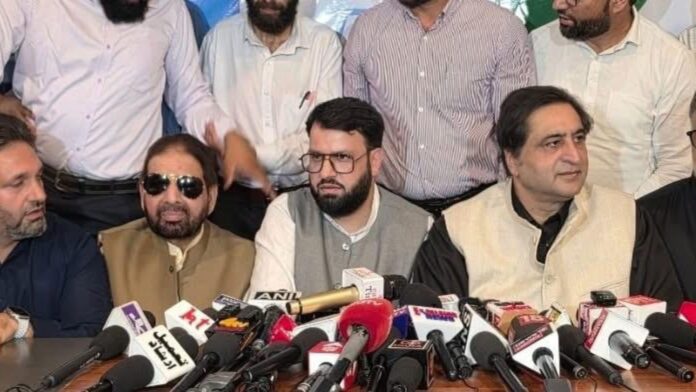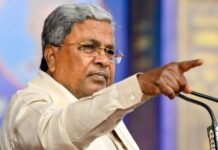Srinagar, June 30 : In a significant political development, the Peoples Conference, Justice & Development Front, and Peoples Democratic Front have come together to form a new alliance.
During a press conference held in Srinagar, the leaders of the three parties officially announced the launch of the “People’s Alliance for Change.”
This newly formed alliance is expected to emerge as a strong Kashmir-based opposition to the NC-led ruling coalition, especially considering the traditional vote base of the Peoples Conference and the previously influential Jamaat-e-Islami, which held sway on Kashmir’s political stage until the 1987 elections.
Hakim Muhammad Yasin’s PDF continues to maintain a strong foothold in the Khan Sahib constituency of Central Kashmir’s Budgam district.
With this unification, the alliance intends to offer a serious electoral challenge to the NC-led alliance, which had secured a sweeping victory in the 2024 assembly elections. The current political landscape is barren, and our alliance offers a viable alternative,” said Sajad Lone during the press conference.
Earlier Jammu and Kashmir Chief Minister Omar Abdullah on Tuesday stated that he has no objection to dissolving the Legislative Assembly and going for fresh elections provided the Union government fulfills its promise to restore full statehood to the region.
His remarks come in the wake of the Supreme Court’s December 2023 judgment, which directed the Centre to expedite the restoration of statehood and hold Assembly elections in Jammu and Kashmir by September 2024.
Jammu and Kashmir lost its statehood and special constitutional status in August 2019 following the abrogation of Article 370. The region was subsequently bifurcated into two Union Territories.
Since then, the demand for restoration of statehood has remained a central issue in the region’s political discourse, with both the Supreme Court and national leadership recognizing its significance.








